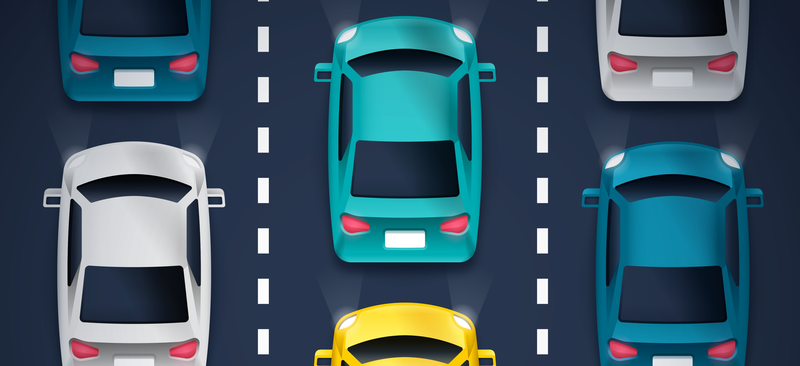Protect data well and get consumer confidence – then connected car potential is limitless

(c)iStock.com/filo
As new technology is developed and connected cars become increasingly popular, the insurance industry, the automotive industry and consumers are all becoming aware of what this might mean. The potential benefits are huge. Tailored insurance premiums, optimised services and personalised feedback are all within reach – but there are some who are concerned about their digital safety and data privacy.
In today’s world, the importance of data security and individuals’ control over how it is used and managed is increasingly high on the public agenda. High profile examples of large scale cyber hacking have alerted consumers to the potential risks of storing personal information online and it is therefore entirely understandable that people are wary of any new technology that is reliant on storing and translating data.
However, a recent survey conducted by Ptolemus for wejo found that by 2020 more than 80% of new cars sold will be connected and that, within the same time-frame, we can anticipate 18 million cumulative UBI (usage based insurance) or PAYD (pay as you drive) policies in the UK alone. This figure contrasts with another report from McKinsey which revealed that 37% of respondents would not even consider a connected car because of fears for their privacy, with many specifically noting their worries that their vehicles could be hacked. Similarly, a report by Microsoft noted that over half (57%) of consumers want more control about how long information about themselves remains available online.
It is clear that to achieve these optimistic sales forecasts, there is a lot of work to be done to reassure consumers that they are well protected against cyber theft or similar issues. However, it is encouraging to see that Microsoft’s research also found that 59% of consumers would be happy for brands or services to access their data if there is a clear benefit in return.
At wejo our smartphone app tracks drivers’ journeys and calculates a driving behaviour score based on factors such as braking, acceleration, speed, location and time of day, providing unparalleled insights into the habits, safety and ability of the drivers. We are well aware of how valuable this kind of information is and take our commitment to safeguarding it very seriously.
Initiatives have already been introduced in France, the US and the UK to maximise the positive use of driving data whilst ensuring that peoples’ privacy is respected and maintained as an absolute priority. This is a positive step in the right direction but consumers must be 100% confident in these measures if they are to support the development of connected vehicles.
For market innovators it is essential to lead by example and promote good communication with consumers. This is essential if a cohesive solution is to be reached and we maintain a continuous discourse with our customers to remind them how data collected from their vehicles can be used to benefit them.
For instance, insurers in the UK and Italy are already analysing not just customer risk profiles but also who and what is at fault when an accident occurs. Looking to the future, by constantly analysing driving behaviour and sharing the findings with drivers themselves, insurers could go one step further than simply covering losses when necessary. Theoretically, they could actually prevent against any damage in the first place.
This kind of reaction to relevant data found within the wealth of big data is truly revolutionary and potentially has the power to save money and lives. There are other ways that consumers can benefit: from identifying the most efficient route to getting maintenance alerts and even getting advice on where to find the nearest parking space. The opportunities are endless.
It is clear to see that all parties stand to benefit from an improved customer response to connected cars. Therefore, all involved have an obligation to shoulder their portion of the current issues to ensure that all data collected is well protected and handled responsibly. Once this is in hand, there is nothing stopping this innovative technology from transforming the way we insure, manufacture and drive our vehicles.

Leave a comment
Alternatively
This will only be used to quickly provide signup information and will not allow us to post to your account or appear on your timeline.